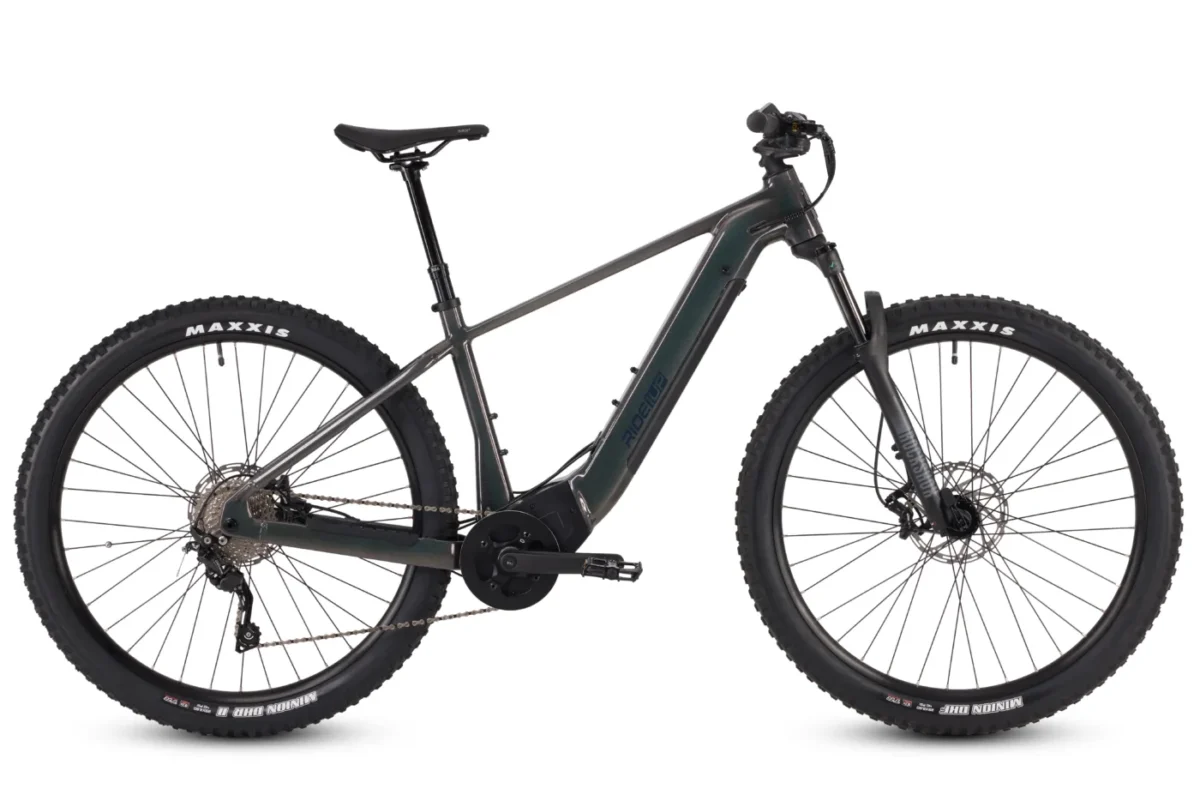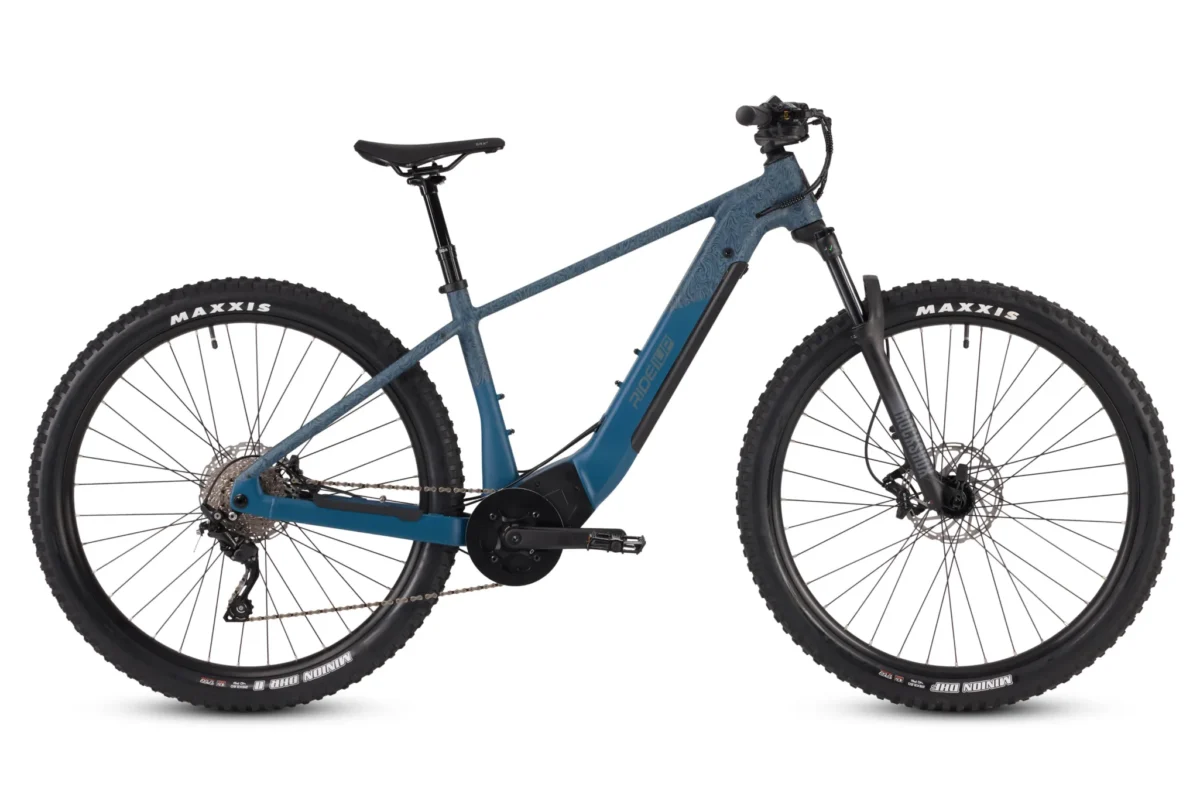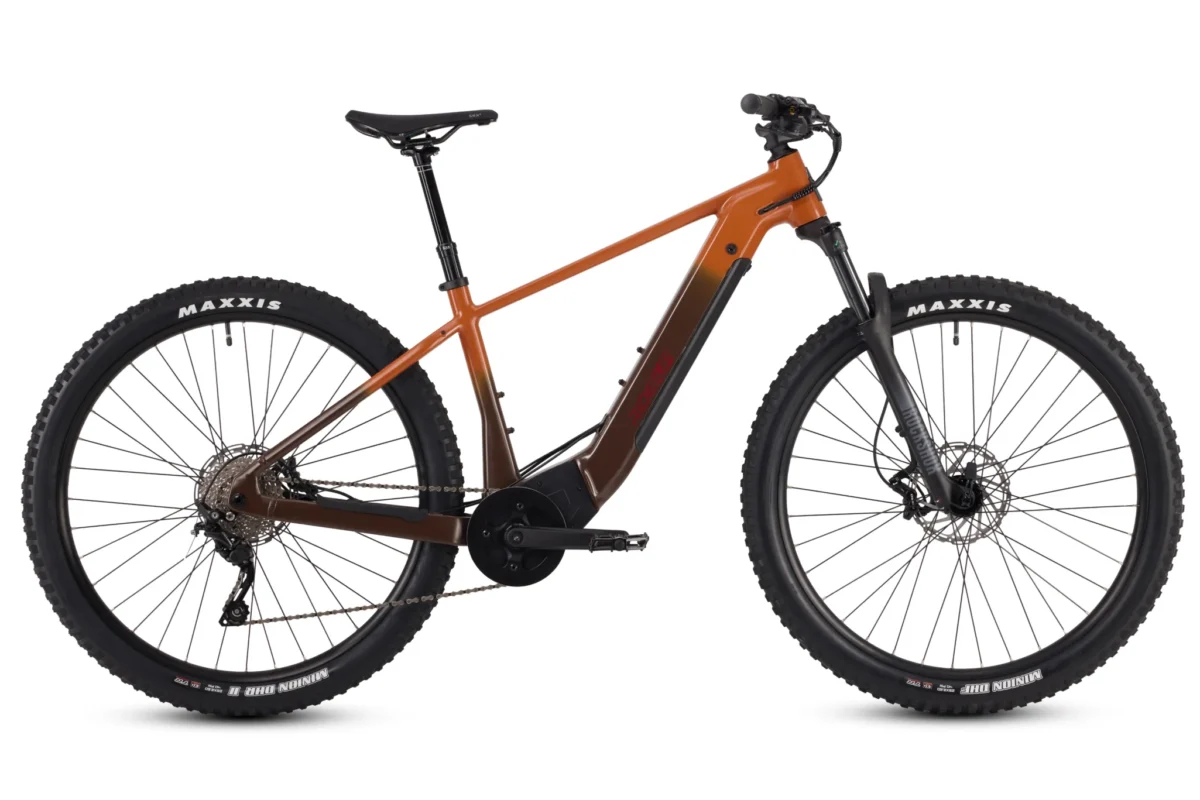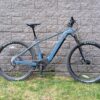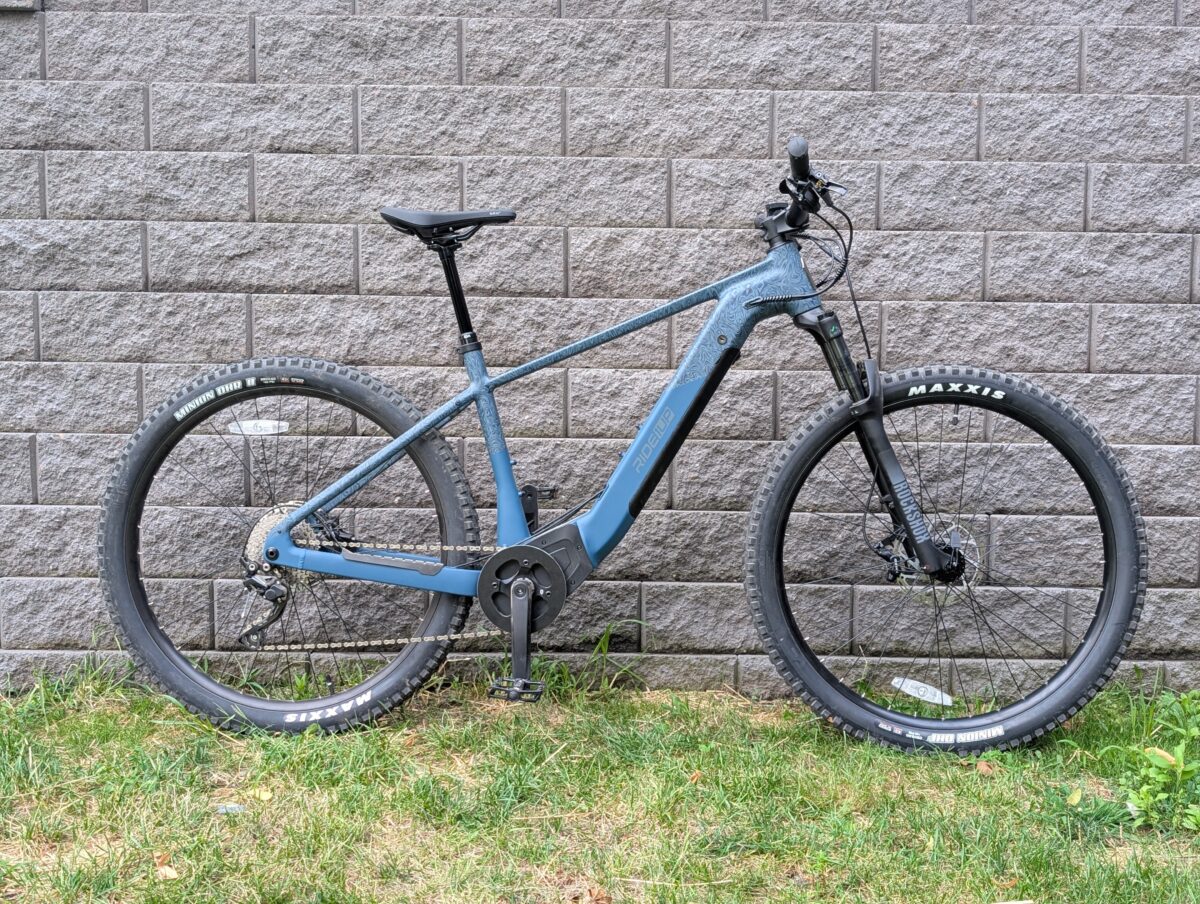
Getting into the world of electric mountain biking can feel impossible. You see these incredible ebikes loaded with brand-name parts, and then you see the price tag. Five, six, even ten thousand dollars. For most of us, that’s a non-starter. So, when the Ride1Up TrailRush dropped, a hardtail eMTB that looks way too good for its price, you have to wonder what the catch is.
Out of curiosity, I started pricing out the parts to see what it would cost me to build this ebike myself. I know that Ride1Up can source its components at cost, but I was shocked by the math. Just the brand-name components, like the German-made Brose motor, the RockShox air suspension fork, Tektro Orion brakes, and the Shimano Deore drivetrain, add up to more than the actual price of the TrailRush. And that doesn’t even account for the frame! How on earth is Ride1Up selling the entire, fully-built electric mountain bike for only $2,095?
In this review, we’re digging in to see if the Ride1Up TrailRush is the real deal out on the trail, or if that incredible price comes with hidden compromises. We’ll even put it head-to-head with one of its closest rivals, the Aventon Ramblas, to see who really owns the crown for the best budget-friendly electric mountain bike.
If this review helps you decide to make room in your garage for the Ride1Up TrailRush, you can support our work at no extra cost by purchasing through our affiliate link. We appreciate it!
Ride1Up TrailRush YouTube Review: See It In Action!
A List Of Components That Shouldn’t Exist at This Price
The German-Engineered Heart: Brose TF Sprinter Motor
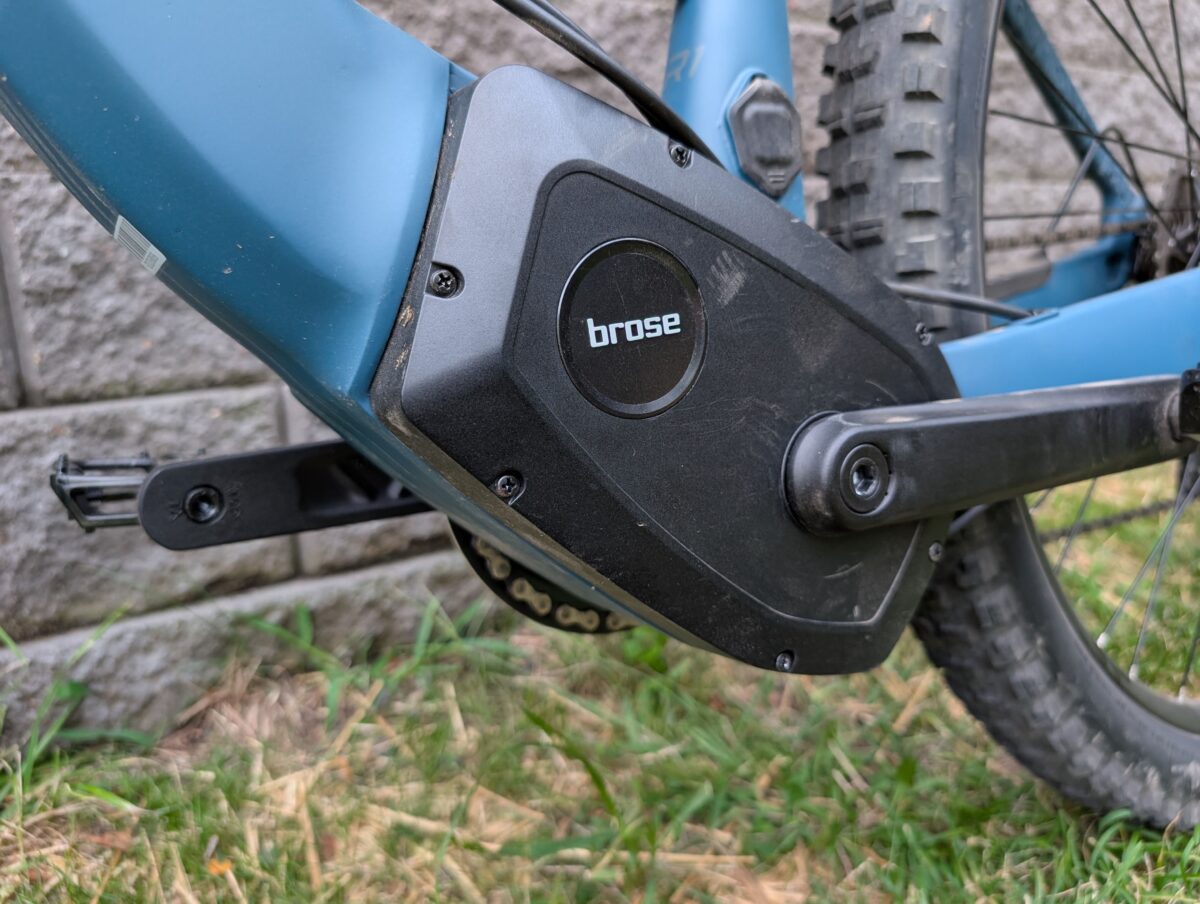
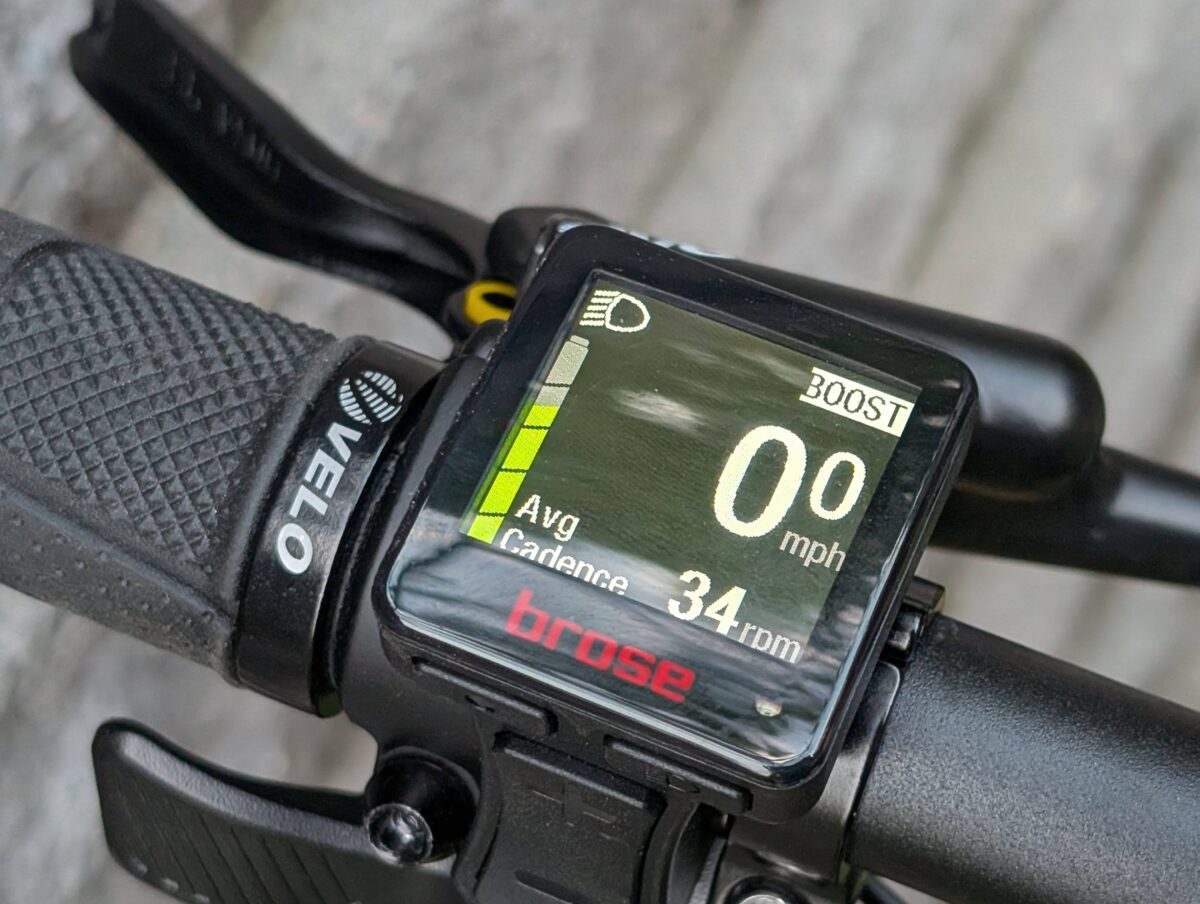
The first, and most significant, component that makes the TrailRush’s price so shocking is its motor. This isn’t some generic, unbranded unit. It’s a German-engineered Brose TF Sprinter mid-drive, the same powerful and impressively quiet motor we tested on Ride1Up’s popular commuter, the Prodigy V2.
Unlike a hub motor that just pushes the wheel, a mid-drive sends power through the bike’s own gears. This means it works with you, resulting in better efficiency and a massive advantage on steep, technical climbs. A huge part of this is the integrated torque sensor. It measures how hard you’re pedaling in real-time and matches the motor’s output instantly. So, the power feels like a natural extension of your own effort, not a sudden, jerky push. In our on-trail testing, the Brose motor was responsive and surprisingly silent, letting us hear the tires on the dirt instead of a loud electric whine.
Shimano Deore: A Drivetrain Built for the Trail
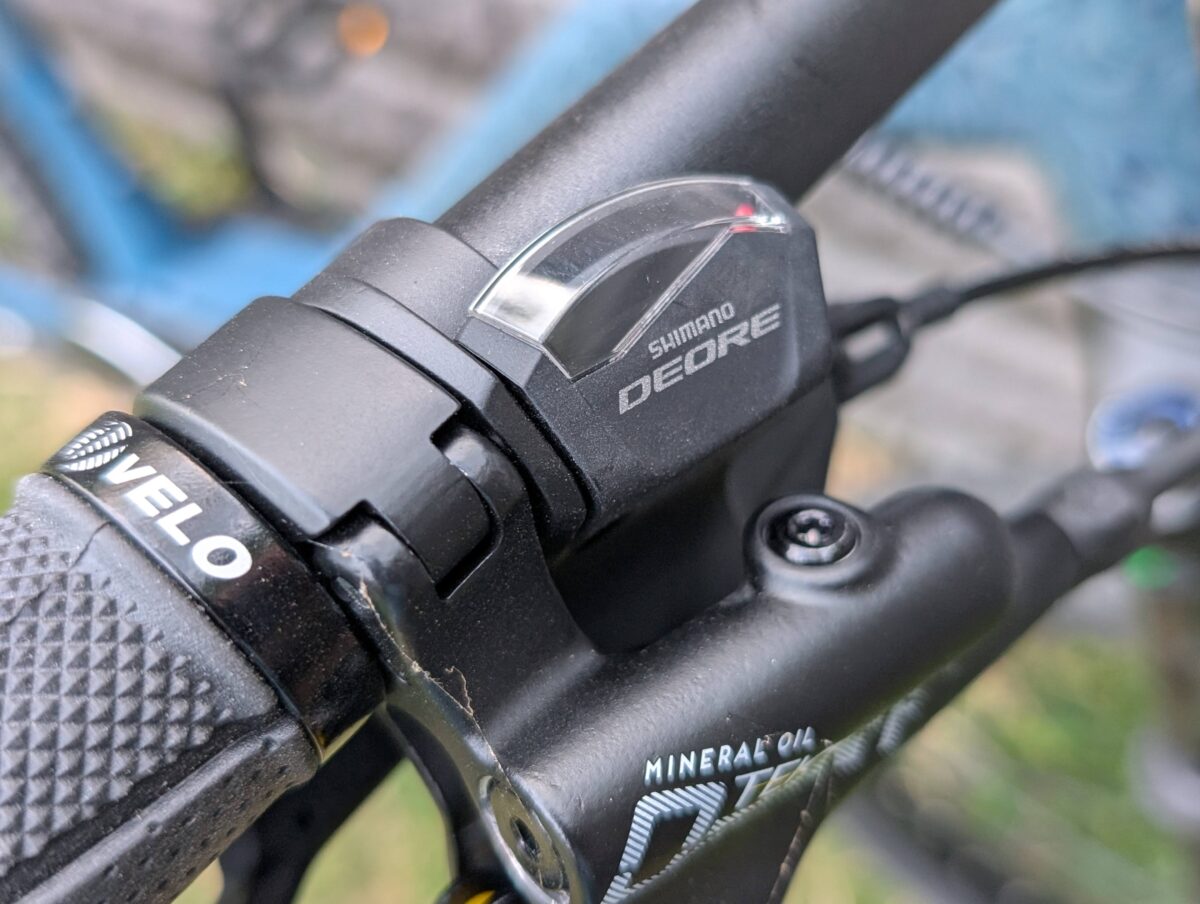
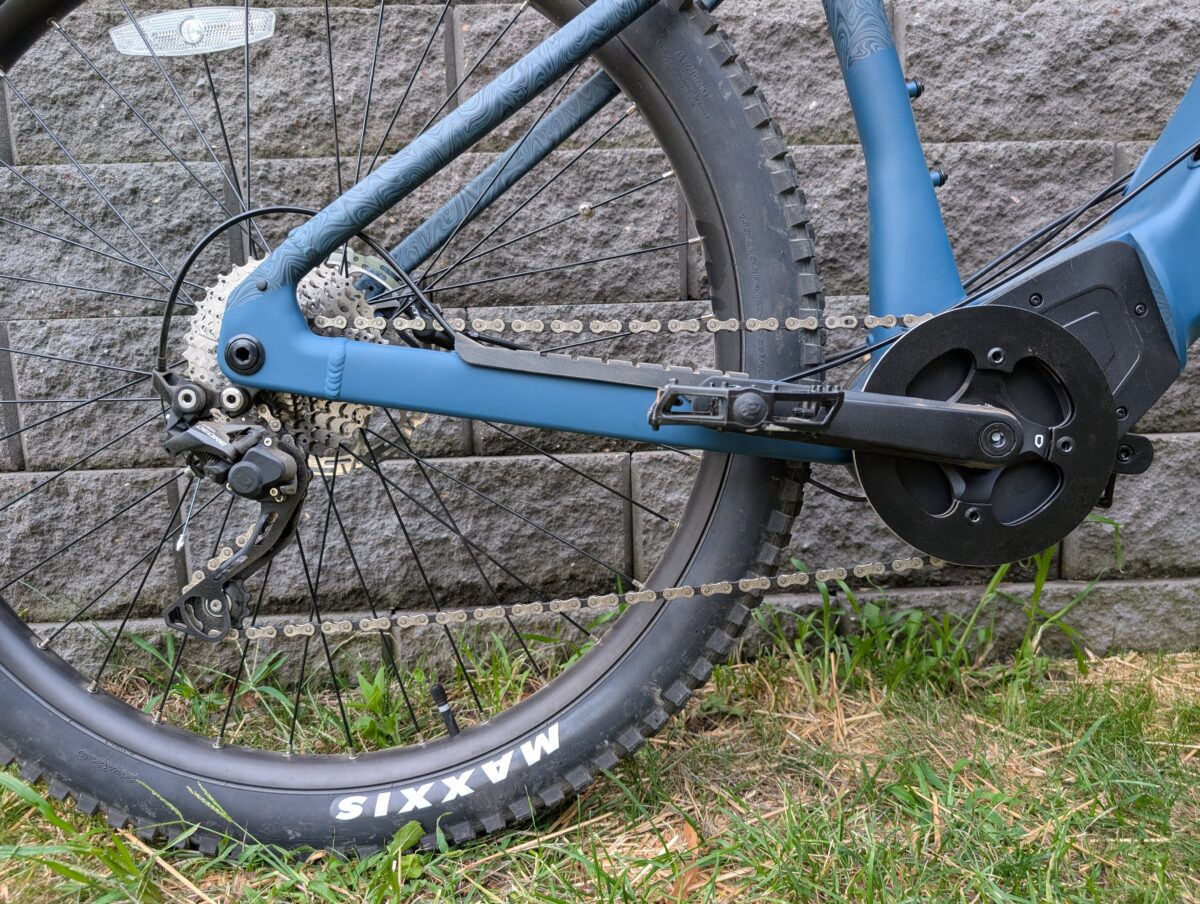
The choice of a full Shimano Deore 10-speed drivetrain is what confirms the TrailRush’s trail-ready intentions. In Shimano’s hierarchy, Deore is widely considered the gateway to “serious” mountain bike components, and that durability is crucial here. A mid-drive motor already puts extra strain on the chain and cassette, and the added stress of aggressive trail riding demands parts that won’t let you down when you’re far from the trailhead.
What this means for your ride is crisp, reliable shifting that doesn’t hesitate, even when you’re powering up a steep climb. The 11-36T cassette provides a great gear range, giving you plenty of options to find the perfect cadence and get the most out of the Brose motor.
Brakes and Suspension: Control Where It Counts
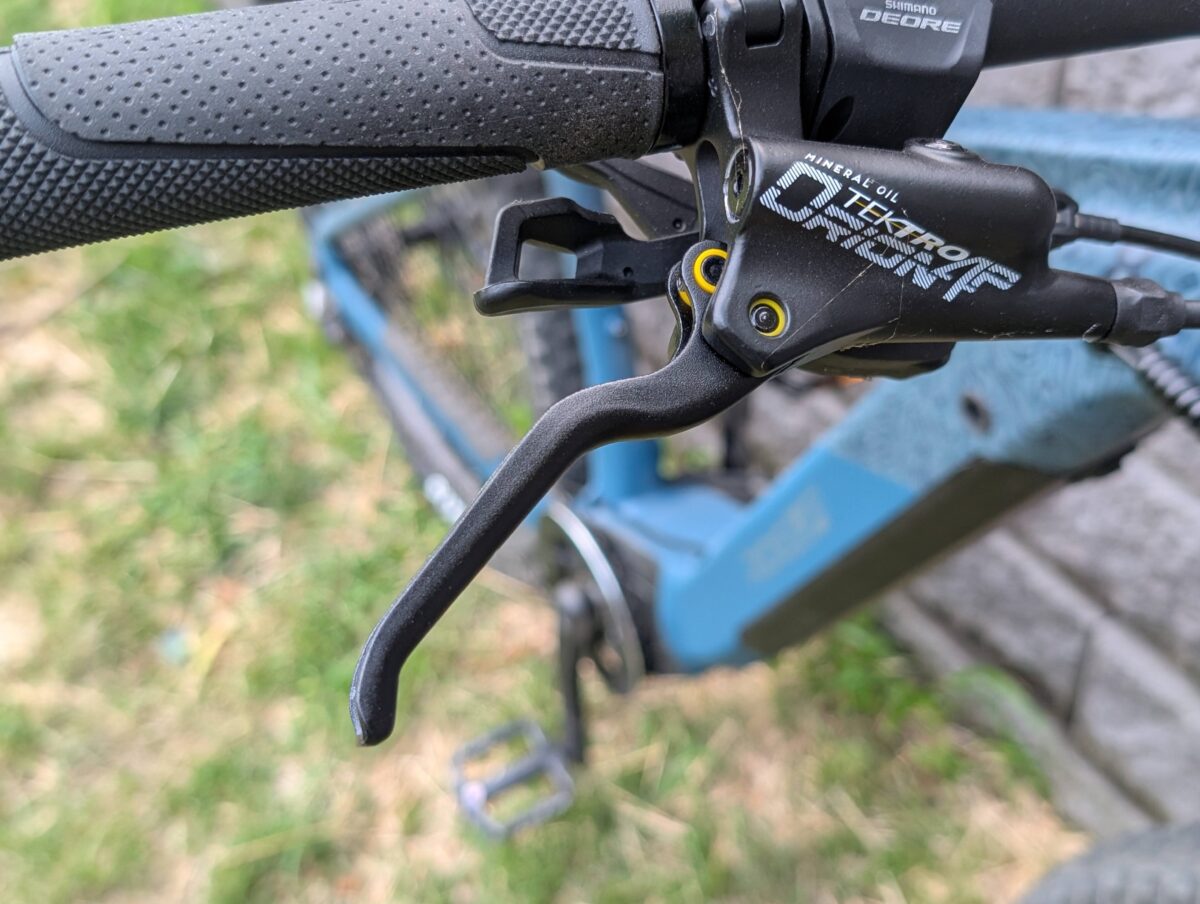
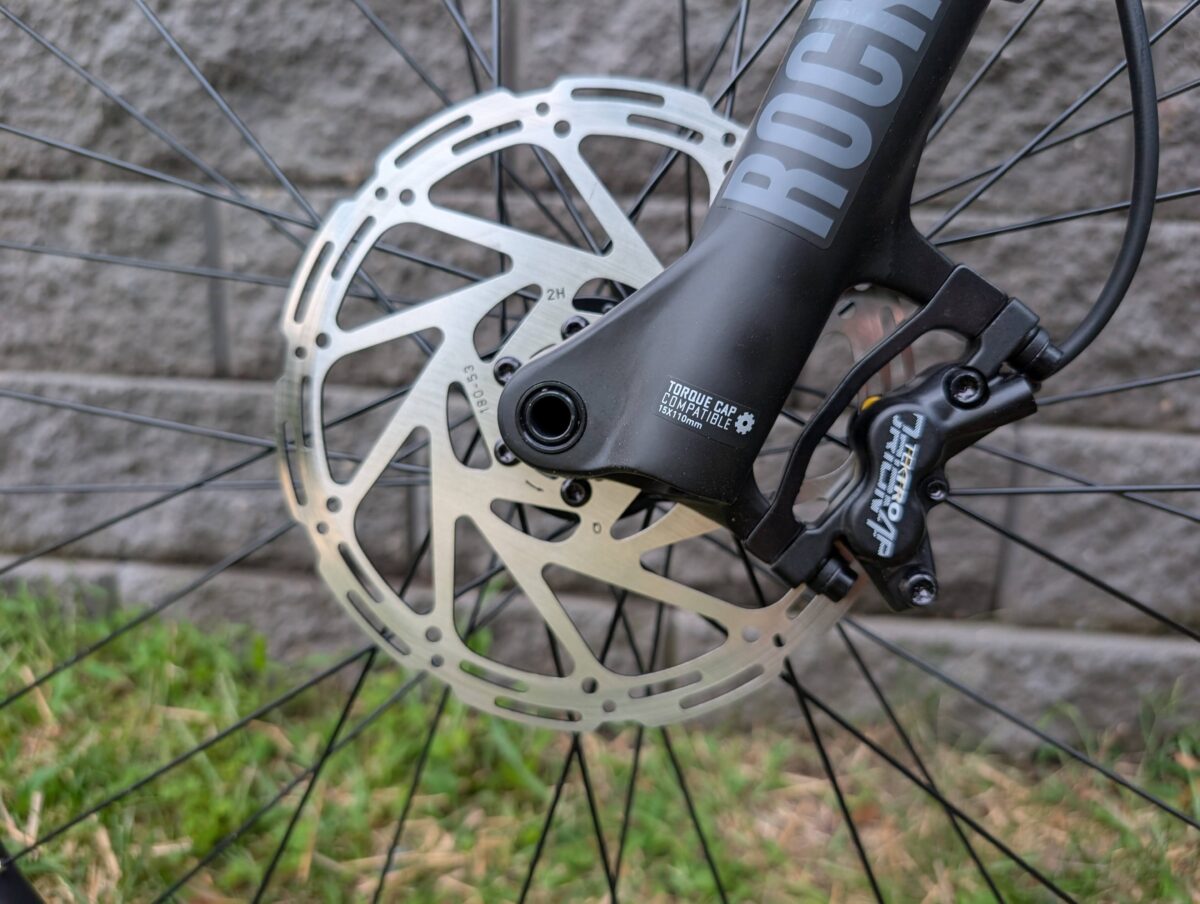
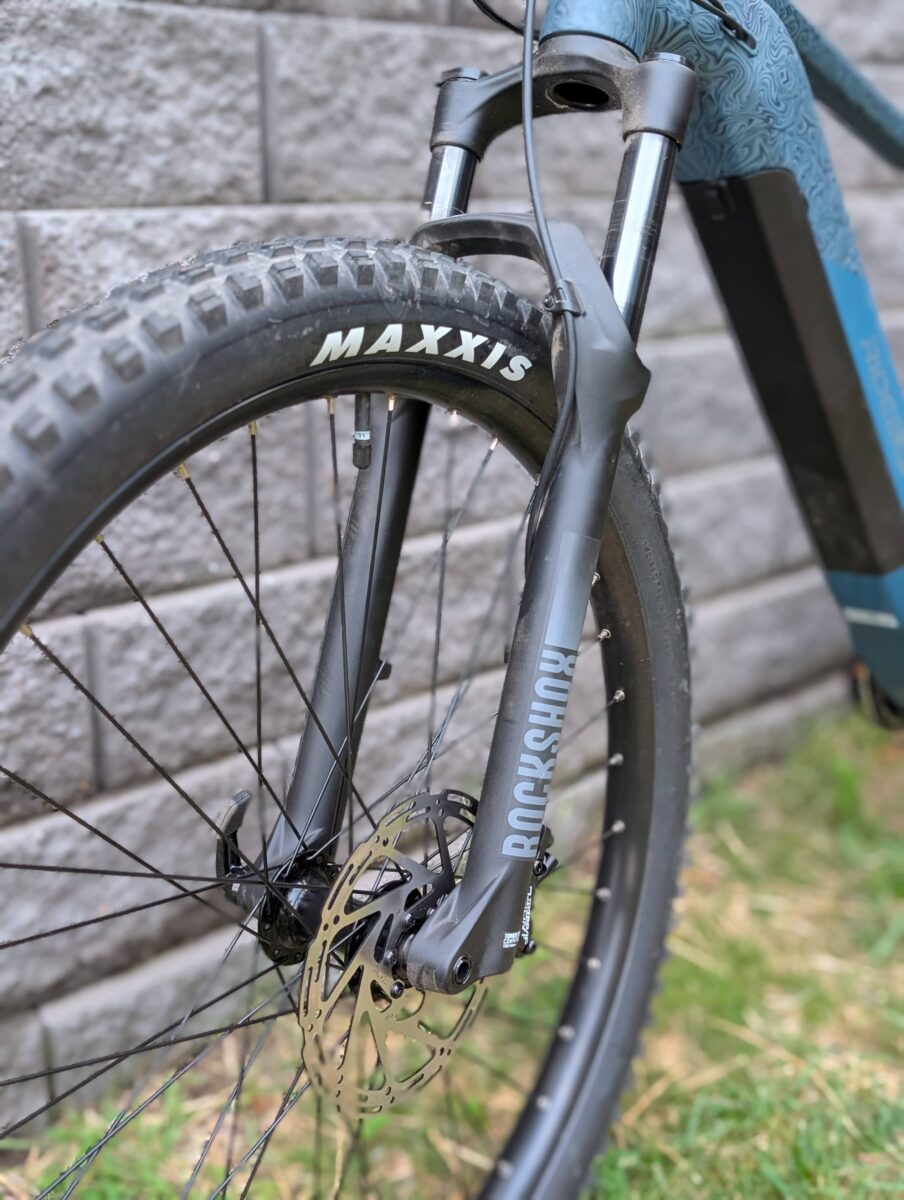
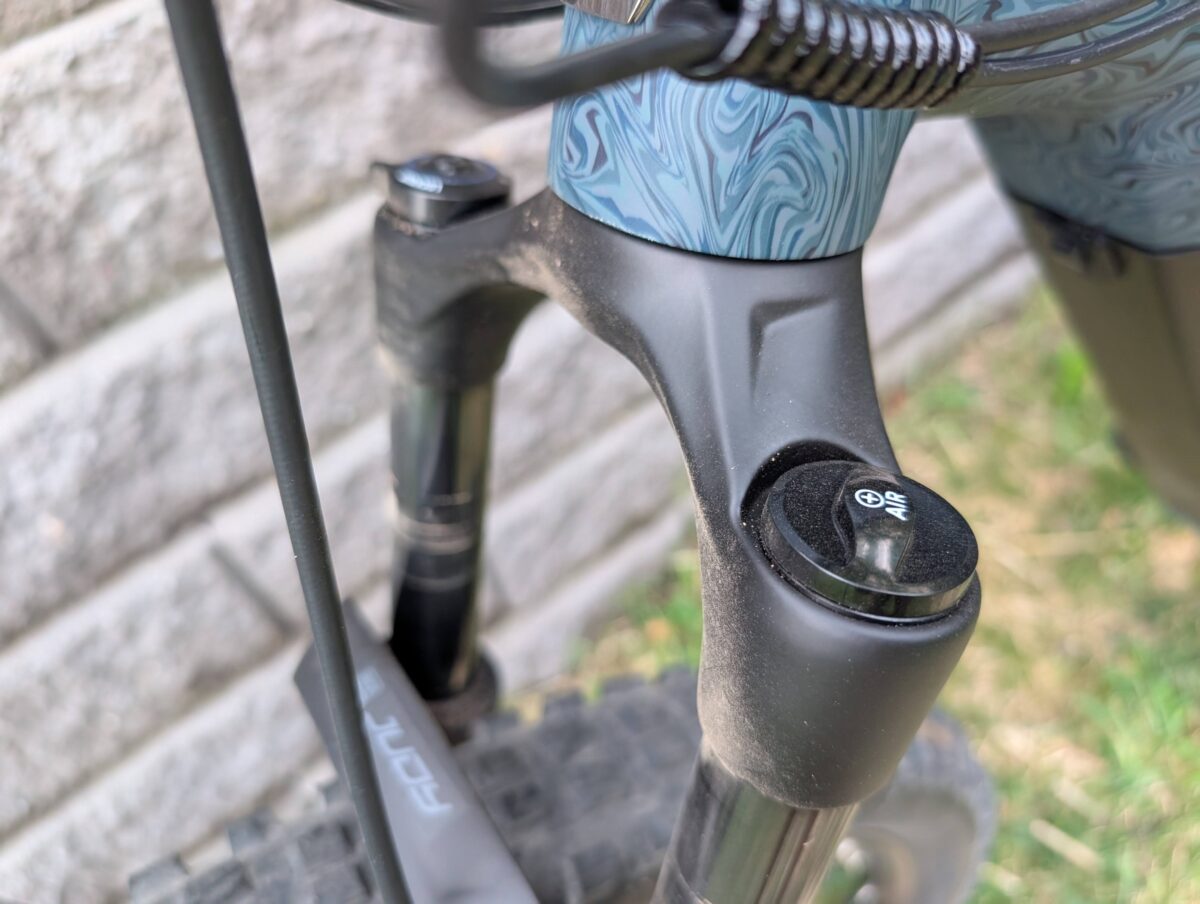
A powerful motor is only useful if you have the control to match. On a 58-pound ebike, stopping power is non-negotiable. Ride1Up equipped the TrailRush with Tektro Orion 4-piston hydraulic brakes, a significant step up from the 2-piston brakes common at this price. This gives you more confident and reliable stopping power, especially on long descents where heat can become an issue.
The other half of the control equation is the RockShox Judy Silver TK fork. The key here is that it’s an air fork, a feature typically reserved for more expensive eMTBs. Unlike a basic coil fork, you can adjust the air pressure to perfectly match your body weight, giving you a much more controlled and responsive ride over rocks and roots. With 120mm of travel, it’s more than enough to smooth out rough cross-country trails.
The Finishing Touches: Tires and a Dropper Post
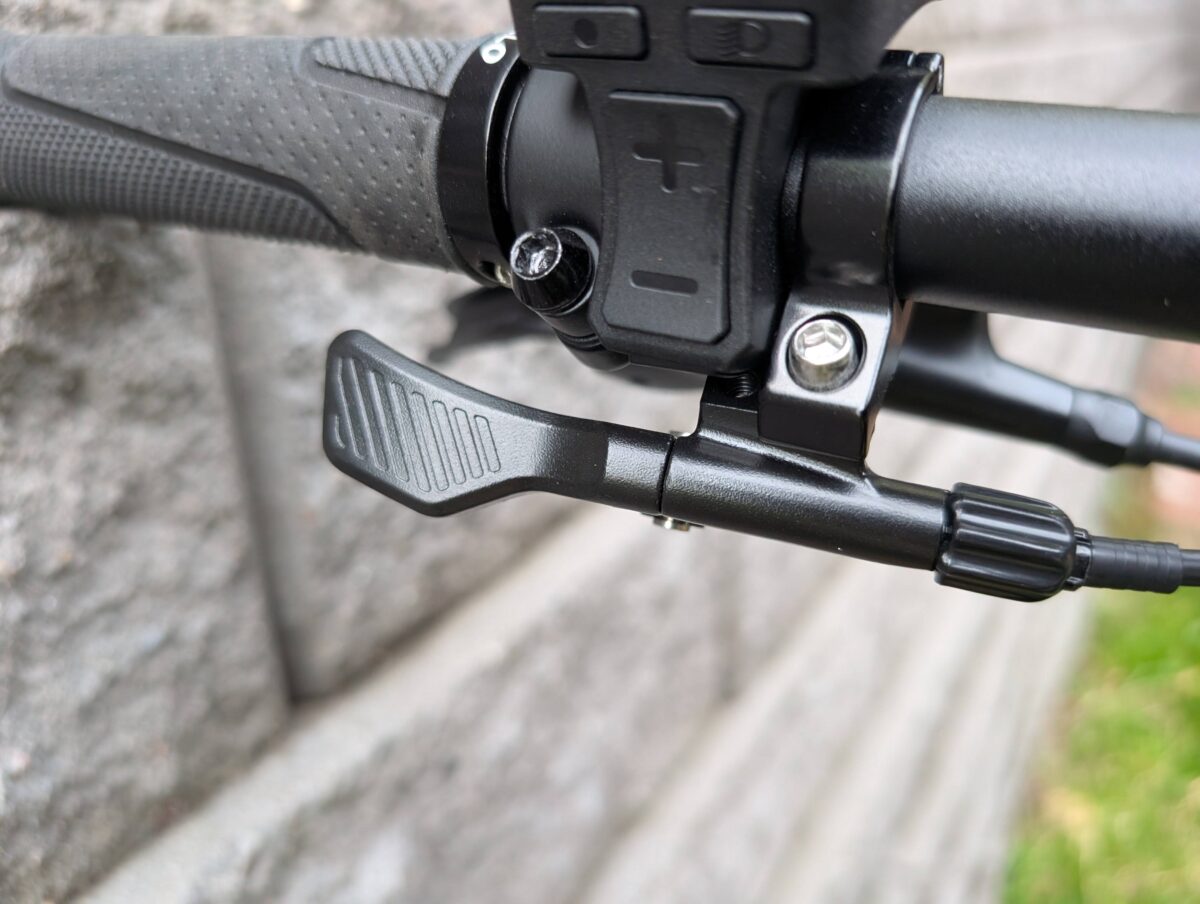
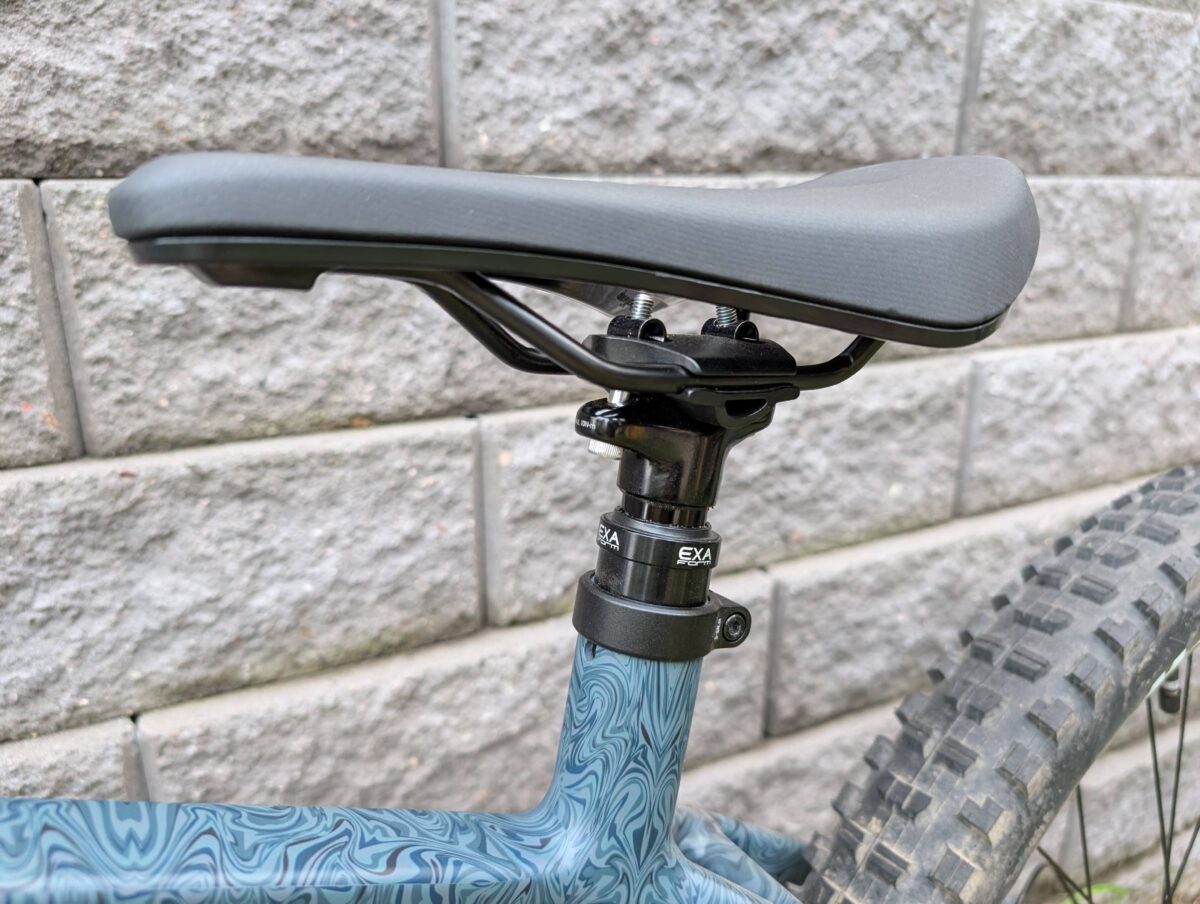
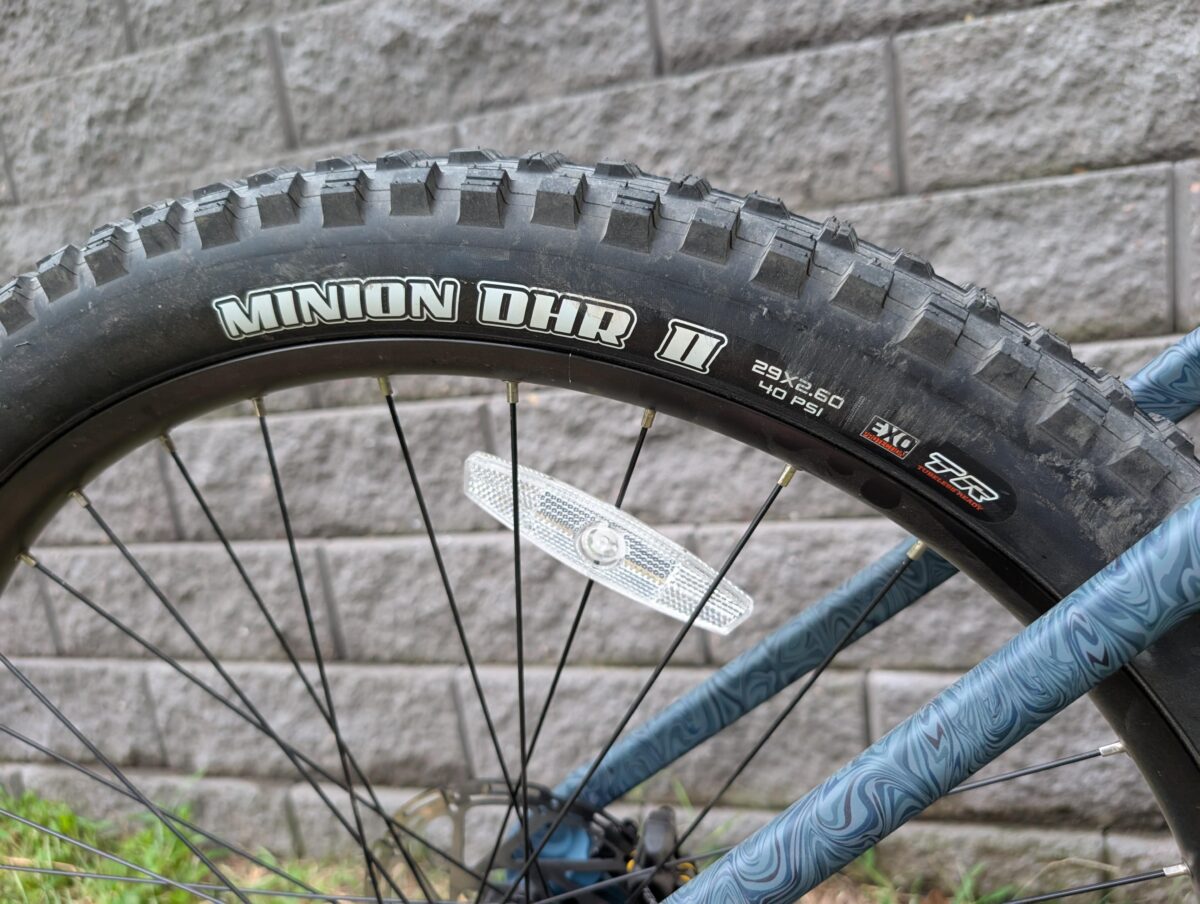
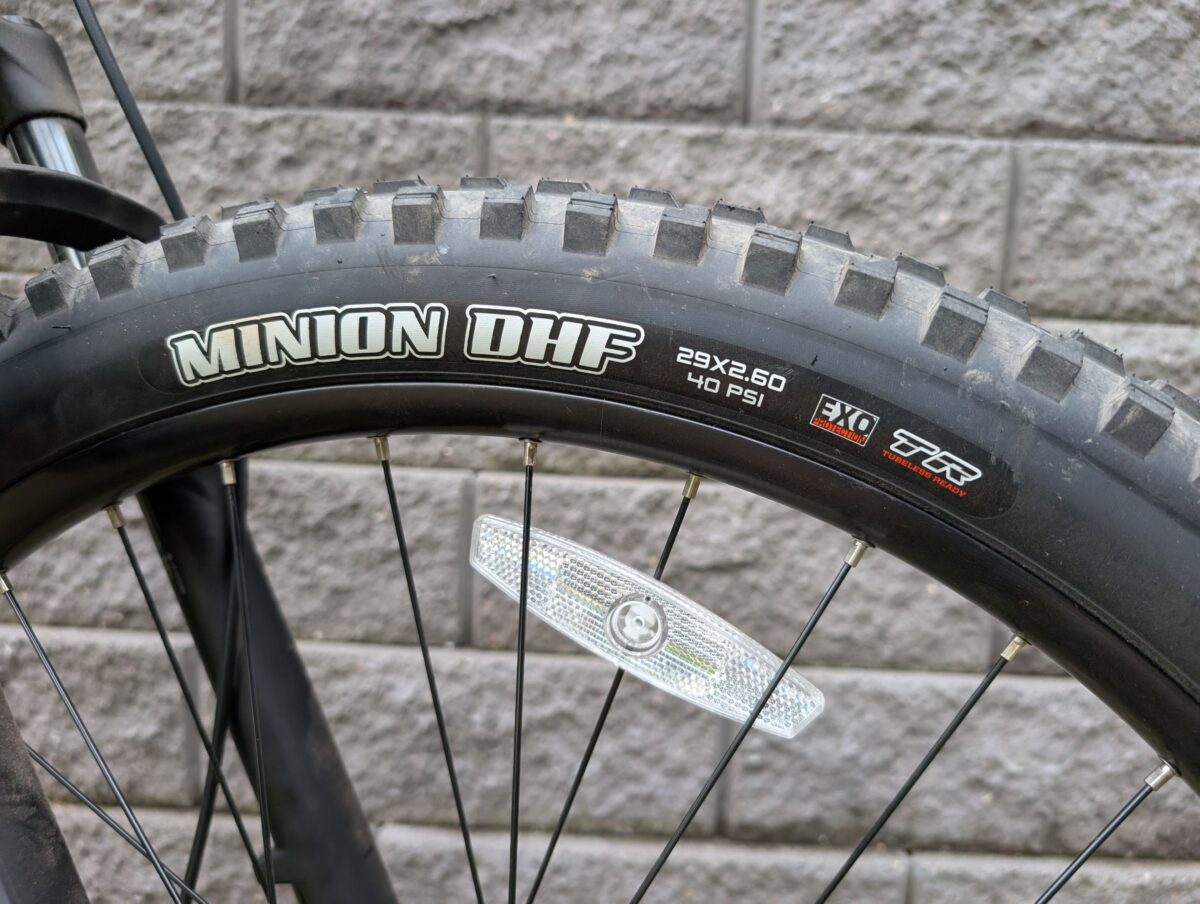
Rounding out the build are two features that shout “this is a real mountain bike.” The tires are Maxxis Minion DHF and DHR—an iconic, confidence-inspiring combo that many riders choose as an aftermarket upgrade. They are also tubeless-ready, a great option for those looking to run lower pressures for more grip. And, of course, there’s the dropper seatpost. Being able to get the saddle out of your way for descents with the push of a button is a game-changer for trail riding, and finding one included on an ebike at this price is a massive win.
Frame, Sizing, and Style
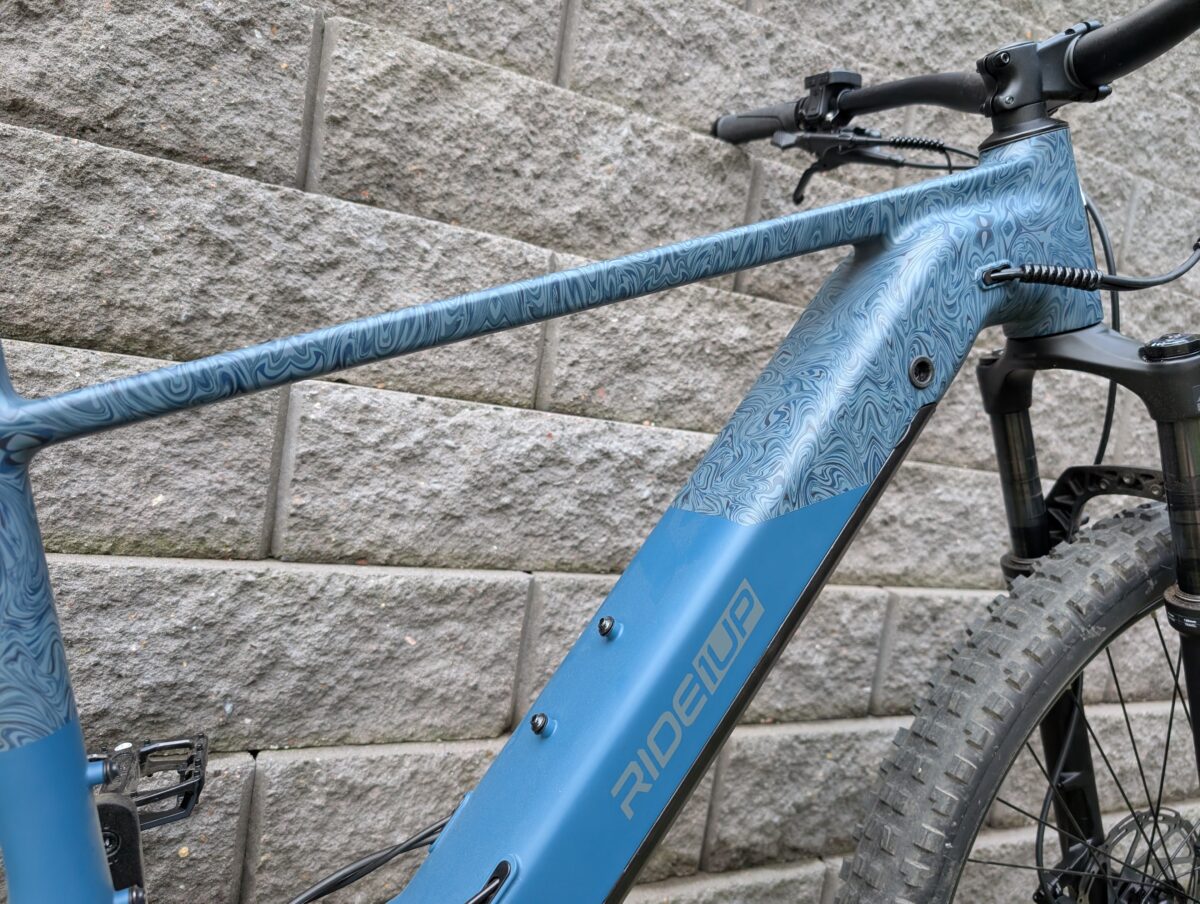
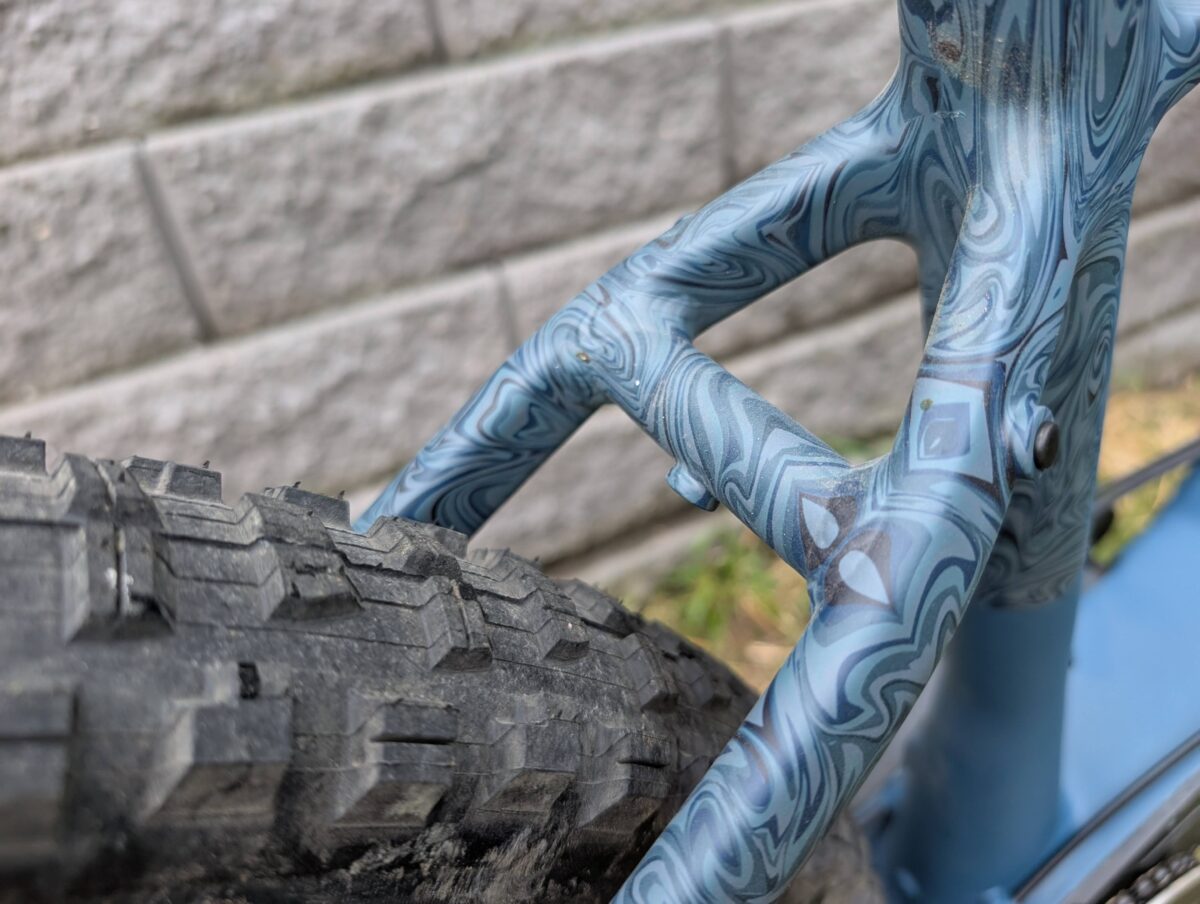
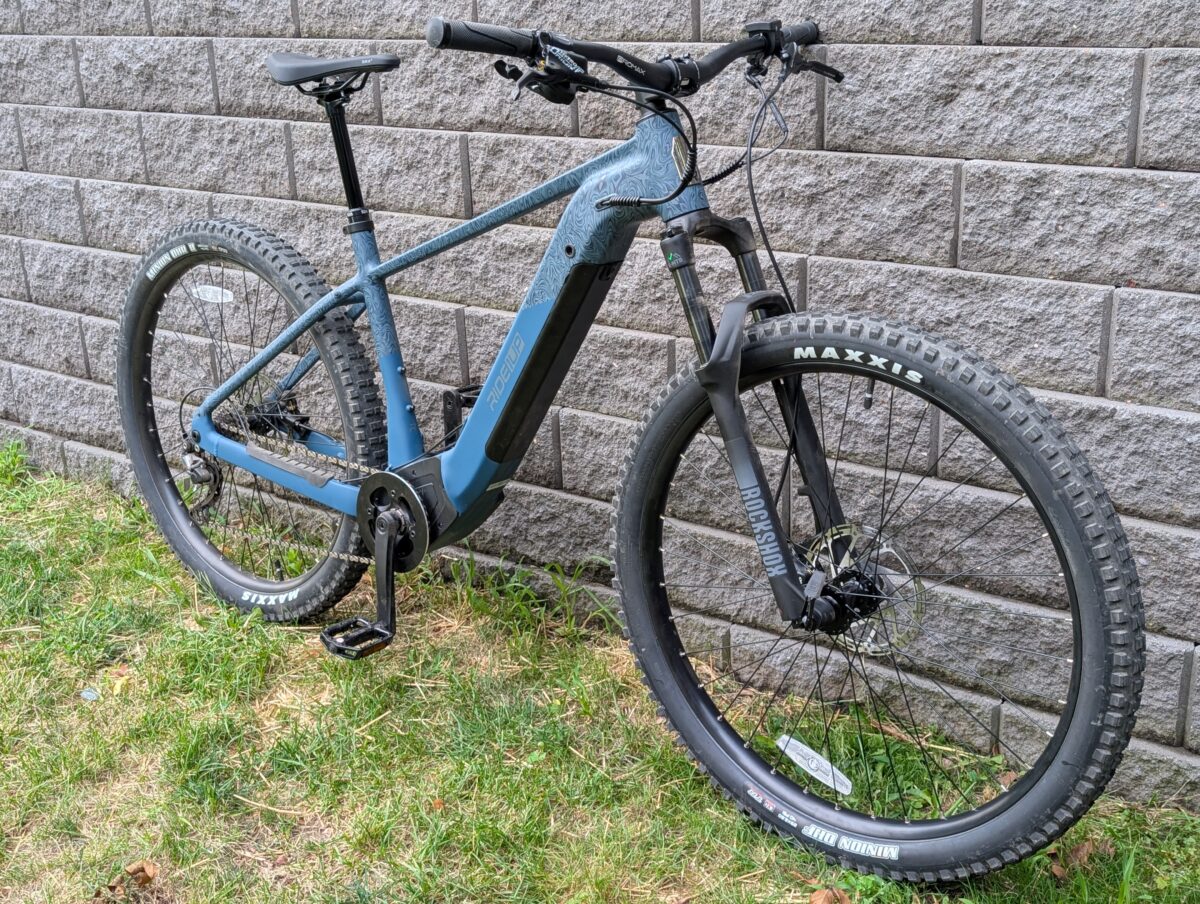
The TrailRush is built around a trail-ready aluminum alloy frame that keeps things looking sleek with internal cable routing to protect the lines from snags and debris. It’s clear Ride1Up designed the TrailRush for riders who might want one ebike to do it all. They added practical touches for real-world use, like two sets of water bottle bosses inside the triangle and even mounting points for a rear rack—perfect if you plan on using it for commuting or weekend bikepacking trips.
Ride1Up offers the TrailRush in Medium and Large sizes, accommodating riders from 5’5″ all the way up to 6’4″. The large size tips the scales at just under 58 lbs and the frame is rated for an impressive 350 lb payload capacity. You can get it in three distinct colors: Burnt Sunset, Galaxy Gray, or a slick Cobalt that features some really cool frame accents.
Ride1Up TrailRush: The Full Spec Sheet
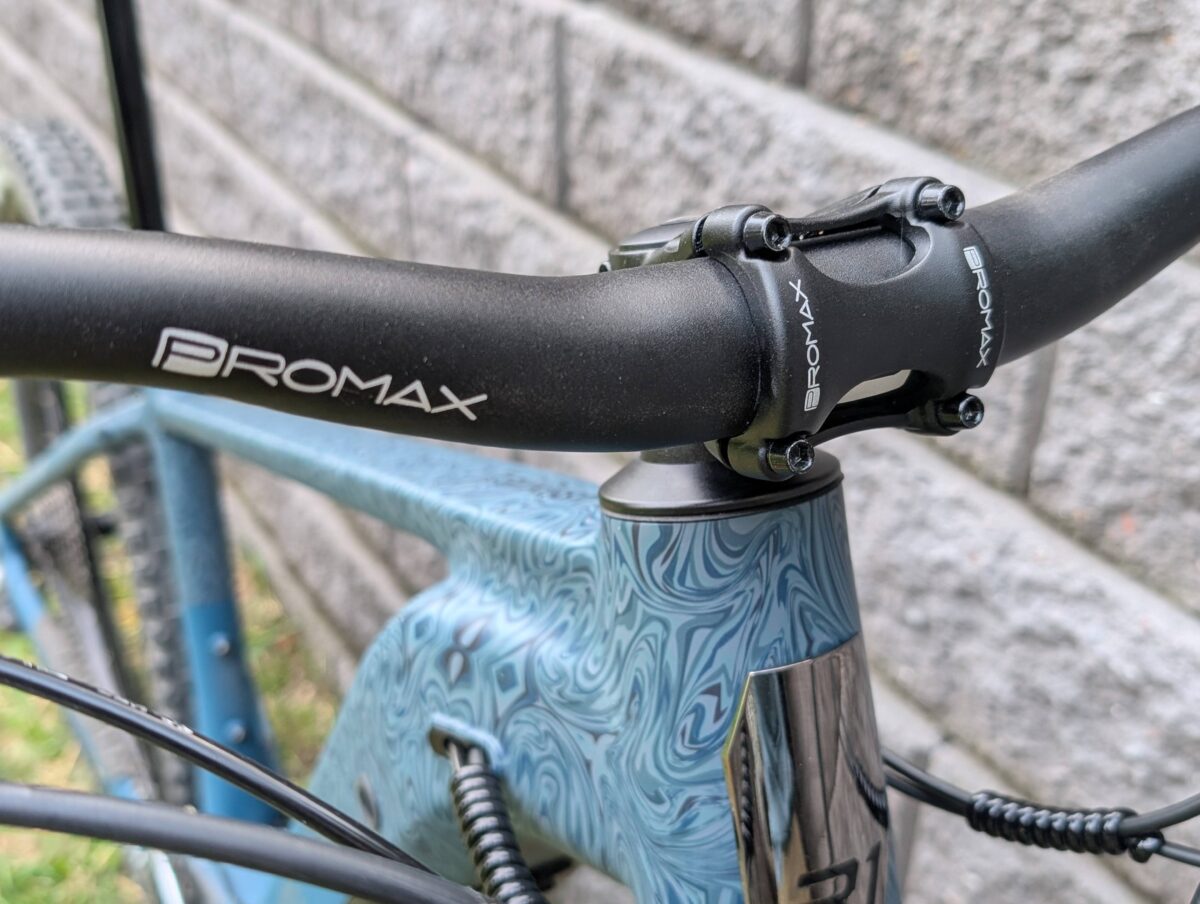
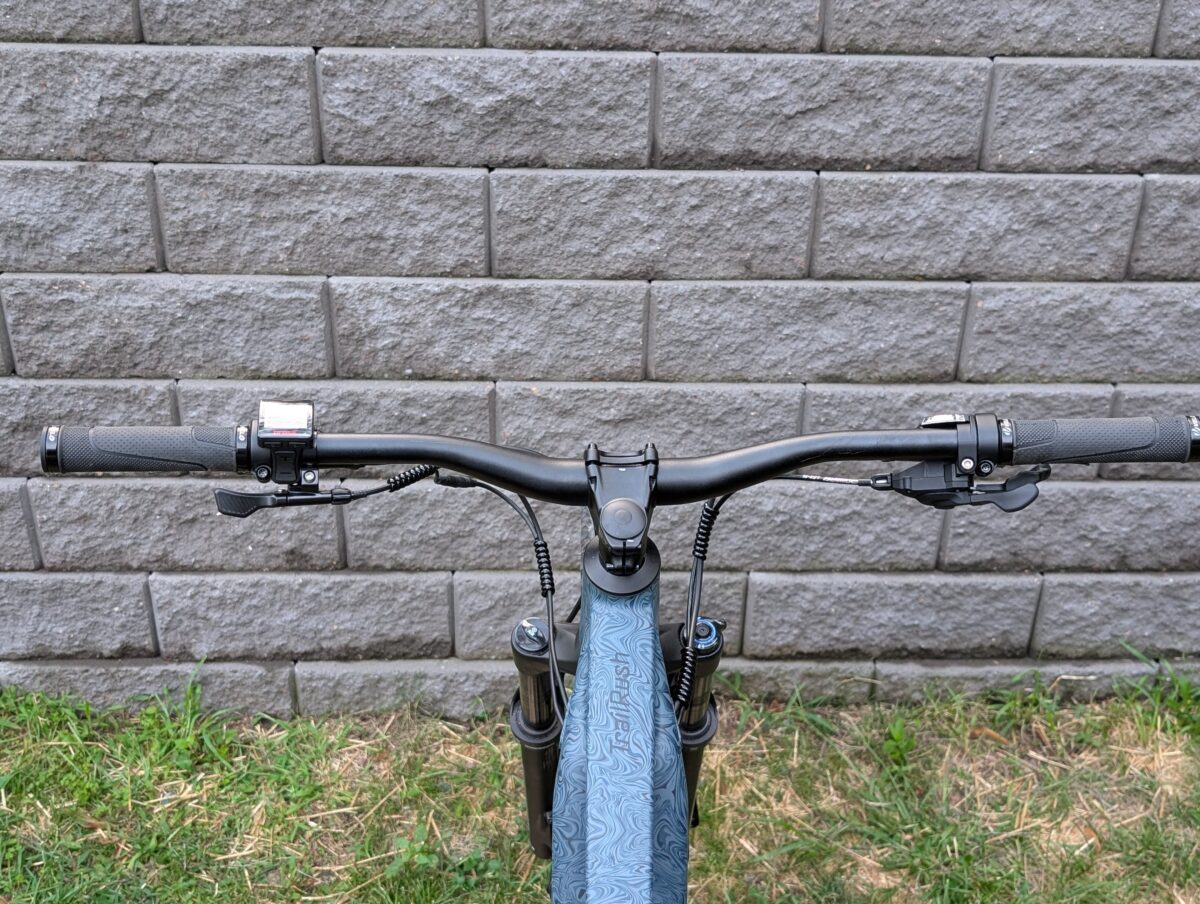
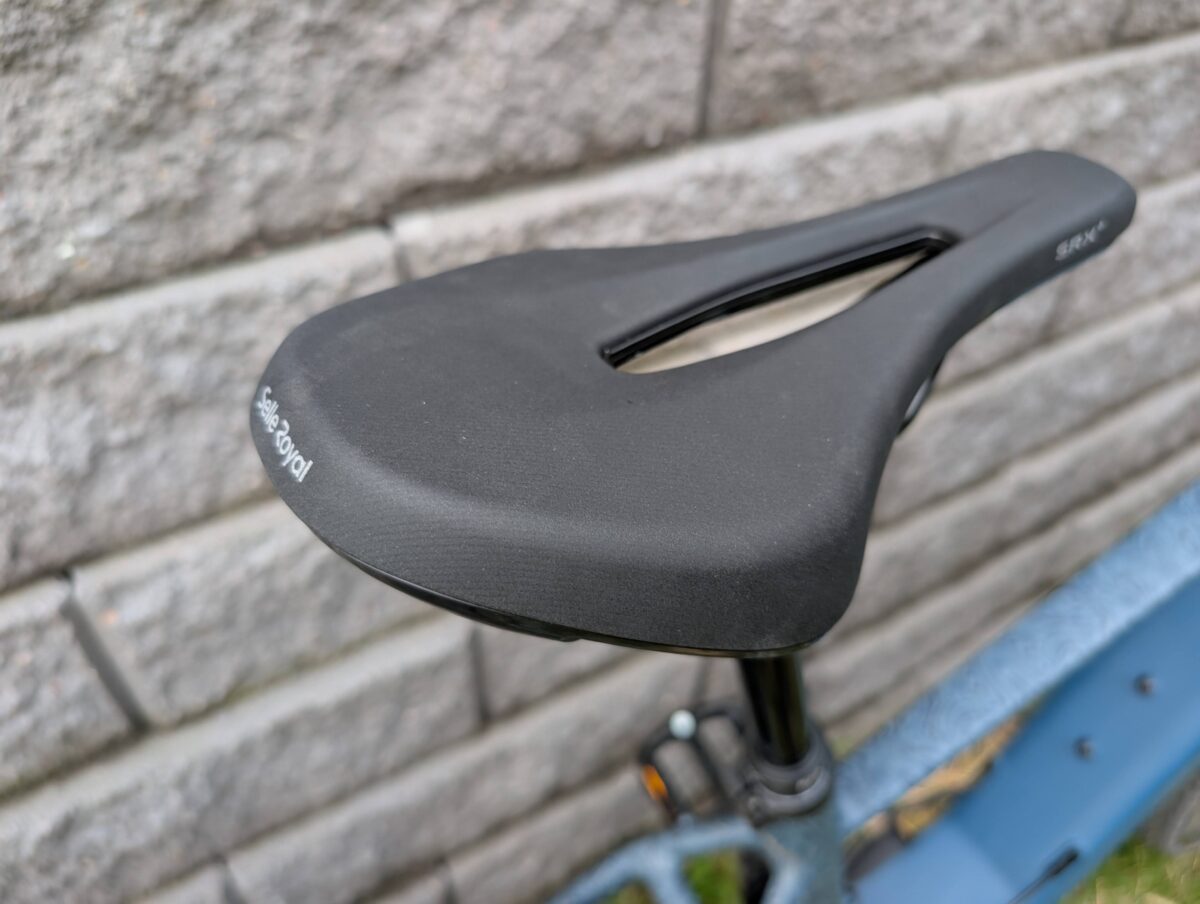
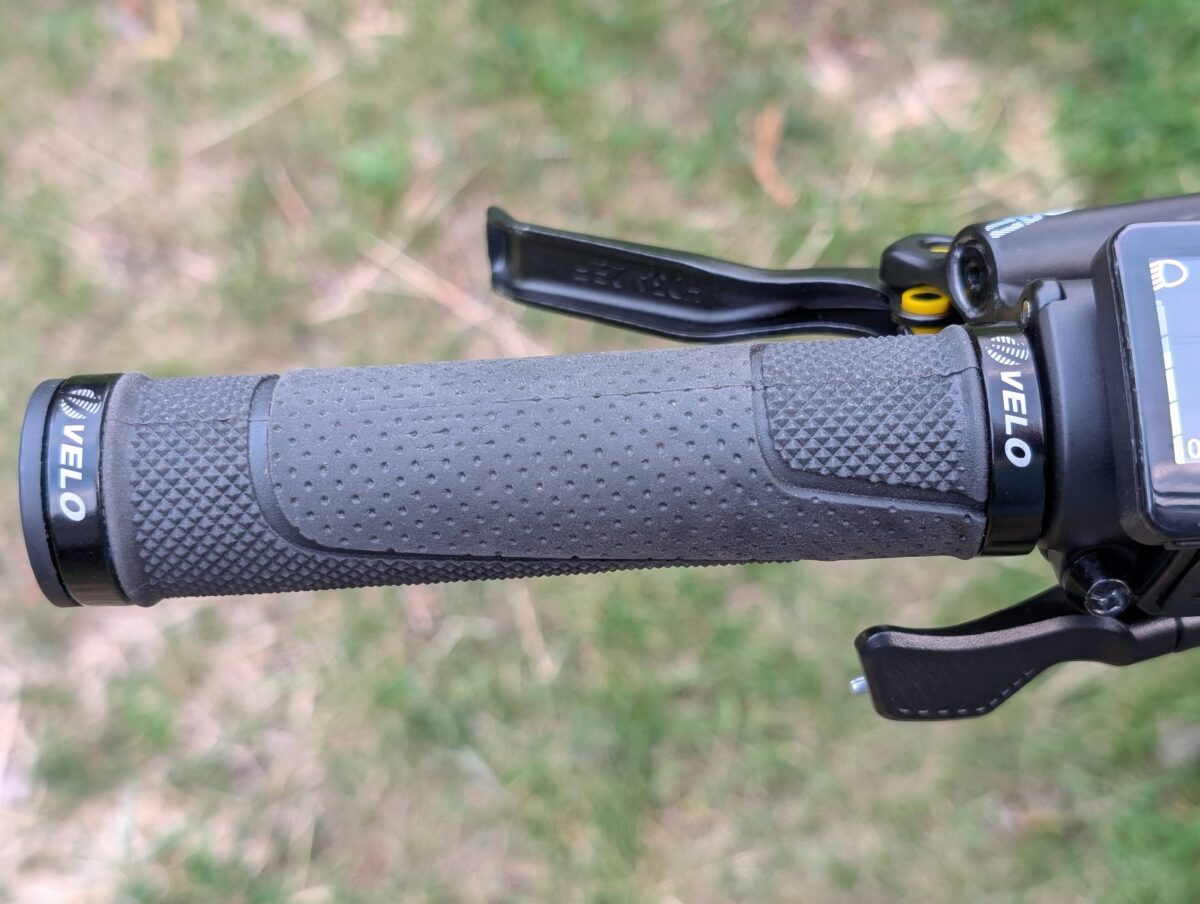
A bike’s personality is only revealed on the trail, but the spec sheet provides the blueprint for its performance. It’s where you can see the deliberate choices a brand makes to hit a specific price point and capability level. For the TrailRush, Ride1Up focused on including reliable, name-brand parts where they count most, a strategy that becomes clear when you examine the full build below.
Ride1Up TrailRush Performance: How It Rides on the Trail
Ride1Up TrailRush Performance: How It Rides on the Trail
All the specs in the world don’t matter if the ebike doesn’t perform where it counts. We took the TrailRush out to its natural habitat—winding singletrack with punchy climbs and fast, flowing descents—to see if the ride lives up to the impressive parts list.
Hitting the Singletrack: First Impressions
Right away, the TrailRush feels like a proper mountain bike. On the flowing sections of the trail, we primarily used the lower assist levels, Eco and Tour. These modes are perfect for taking the edge off the climbs while still making you feel like you’re getting a good workout. The most striking thing is just how quiet the Brose motor is. You hear the sound of the Maxxis tires gripping the dirt, not a high-pitched electric whine, which makes for a much more immersive ride.
The Uphill Test: Torque on Demand
To really test the motor, we pointed the TrailRush at the steepest, most technical climb on the trail. In Eco mode, making it to the top was possible, but it was a serious effort. A quick press of the button into Boost mode, however, completely transformed the experience. The bike just walked up the hill.
The torque sensor is incredibly sensitive, delivering power the instant you put pressure on the pedals, which is critical when you’re trying to maintain momentum on a tricky climb. Even from a near-stop on a steep hairpin turn, the motor provided smooth, controlled power to get going again with almost no effort. For the vast majority of trail situations, this motor has plenty of climbing power.
Beyond the Trail: A Class 3 Speed Test
While it’s built for the dirt, we wanted to test the TrailRush’s Class 3 capabilities on flatter ground. Cruising comfortably and sustainably around 20–21 mph is easy, making it great for bike paths or connecting trails. Getting all the way to the 28 mph top speed is possible, but it will give you a workout, requiring you to be in the highest gear and putting in a strong, consistent pedaling effort.
The TrailRush is geared for climbing torque, not setting speed records on pavement. It’s also worth noting that, like any ebike, the motor delivers its strongest performance on a full charge; our test was done at about 75% battery. The speed is there if you need it, but this ebike is definitely most at home on the trail.
The Ride1Up Experience: What to Expect

A huge reason the TrailRush is so affordable is Ride1Up’s direct-to-consumer (D2C) business model. The ebike is shipped directly to your door, and you handle the final assembly. Thankfully, the process is straightforward, and Ride1Up provides helpful assembly videos. Our box came with some surprisingly good quality hex wrenches, grease, and a manual to help get the job done.
The primary benefit of this model is the significant cost savings. The tradeoff is that you can’t test ride the bike before you buy it, and all customer support and warranty claims are handled remotely through Ride1Up’s US-based team. While they have an active online community, you won’t be able to walk into a local shop for immediate help unless you pay them for service. It’s a model that works extremely well for those who are comfortable with a little wrenching and online communication.
Ride1Up TrailRush vs. The Aventon Ramblas
To truly understand where the TrailRush fits in the market, it’s helpful to see it side-by-side with its closest competitor. The Aventon Ramblas is another top contender in the affordable eMTB review space, and while it shares a similar goal, it gets there with a different philosophy and price point.
Ride1Up TrailRush: The Pros and Cons
After spending time on the trail, it’s clear that the TrailRush gets a lot right, especially for the price. However, like any ebike, there are tradeoffs to consider.
The Final Verdict: Who is the Ride1Up TrailRush For?

Ride1Up TrailRush is an ebike that makes you question how it’s even possible. For years, riders who were curious about electric mountain bikes have faced a massive financial barrier. This ebike effectively tears that barrier down.
This is the perfect electric mountain bike for the rider who prioritizes performance-per-dollar above all else. If you’ve been mountain biking for years and want to add an affordable eMTB to your stable, this is it. If you’re new to the trails and want a serious, capable machine that you won’t outgrow in a season, this is it. It’s for the person who is comfortable doing their own assembly and prefers the cost savings of the direct-to-consumer model.
While it’s best suited for cross-country and flowing singletrack, the TrailRush is more than just a budget ebike; it’s a statement. It proves that a truly trail-worthy eMTB doesn’t have to cost a fortune, and that’s a massive win for everyone.
Did our review help you? If you decide to purchase the Ride1Up TrailRush, you can support our work by using our affiliate link before you buy. It helps us make more reviews like this one at no extra cost to you. Thank you for your support!


